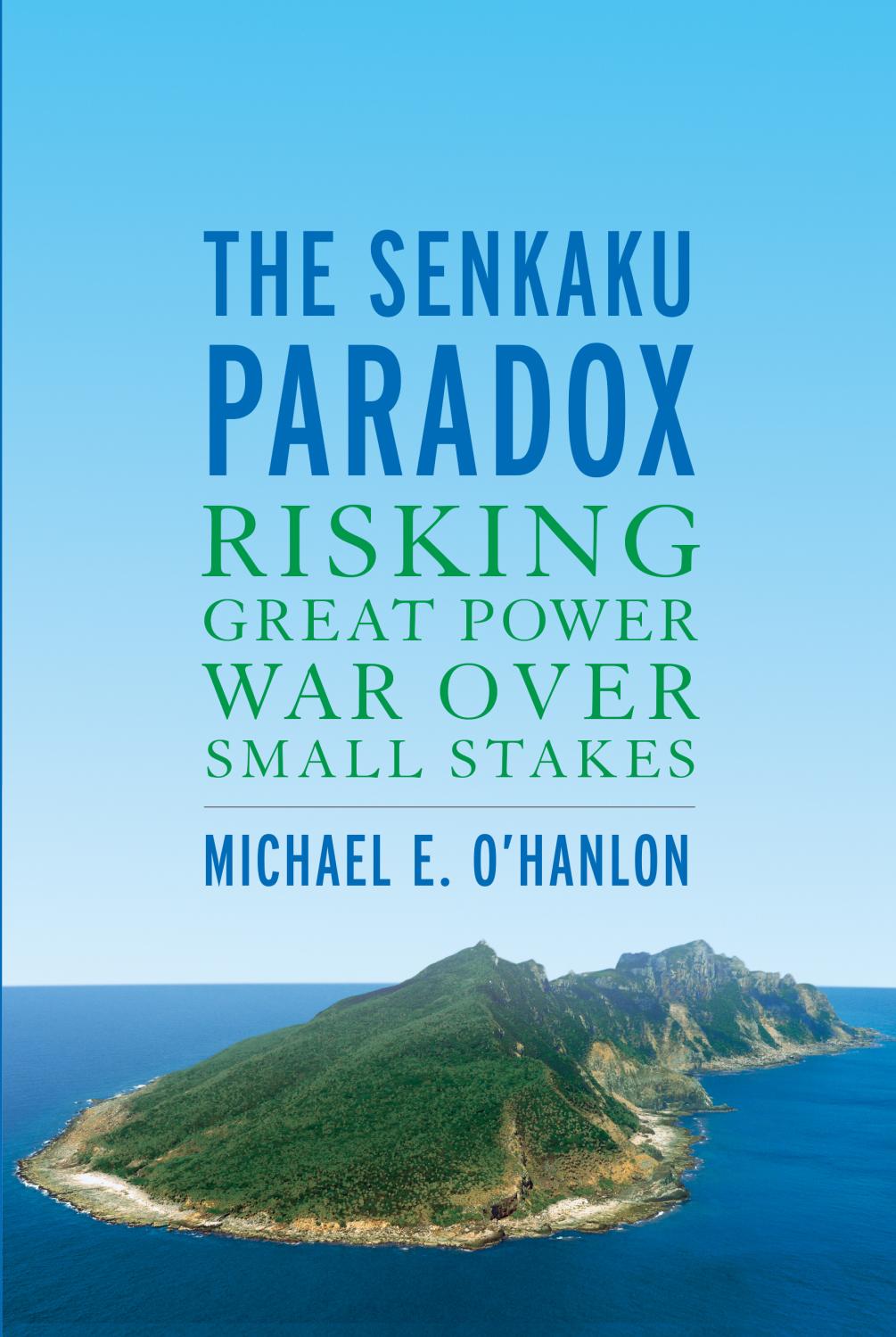The Senkaku Paradox
America needs better options for resolving potential crises
In recent years, the Pentagon has elevated its concerns about Russia and China as potential military threats to the United States and its allies. But what issues could provoke actual conflict between the United States and either country? And how could such a conflict be contained before it took the world to the brink of thermonuclear catastrophe, as was feared during the cold war?
Defense expert Michael O’Hanlon wrestles with these questions in this insightful book, setting them within the broader context of hegemonic change and today’s version of great-power competition.
The book examines how a local crisis could escalate into a broader and much more dangerous threat to peace. What if, for example, Russia’s “little green men” seized control of a community, like Narva or an even smaller town in Estonia, now a NATO ally? Or, what if China seized one of the uninhabited Senkaku islands now claimed and administered by Japan, or imposed a partial blockade of Taiwan?
Such threats are not necessarily imminent, but they are far from inconceivable. Washington could be forced to choose, in these and similar cases, between risking major war to reverse the aggression, and appeasing China or Russia in ways that could jeopardize the broader global order.
O’Hanlon argues that the United States needs a better range of options for dealing with such risks to peace. He advocates “integrated deterrence,” which combines military elements with economic warfare. The military components would feature strengthened forward defenses as well as, possibly, limited military options against Russian or Chinese assets in other theaters. Economic warfare would include offensive elements, notably sanctions, as well as measures to ensure the resilience of the United States and allies against possible enemy reprisal.
The goal is to deter war through a credible set of responses that are more commensurate than existing policy with the stakes involved in such scenarios.
Praise for The Senkaku Paradox
“Although the U.S. has the world’s largest military, Russia and China have the local advantage in areas of contention near their borders, and in a masterful treatment Michael O’Hanlon shows that traditional direct ways of coping with the possible aggression are inadequate. Instead, he persuasively presents an alternative mix of military and economic asymmetric strategies that could bolster deterrence and put the U.S. in position to respond effectively to Russian or Chinese adventures without triggering destructive escalation.”
—Robert Jervis, author of How Statesmen Think: The Psychology of International Politics
Author

Michael O'Hanlon is a senior fellow in Foreign Policy at the Brookings Institution, where he specializes in U.S. defense strategy, the use of military force, and American national security policy. He is also director of research for the Foreign Policy program at Brookings. He is also a member of the International Institute for Strategic Studies. O’Hanlon was a member of the external advisory board at the Central Intelligence Agency from 2011 to 2012.

